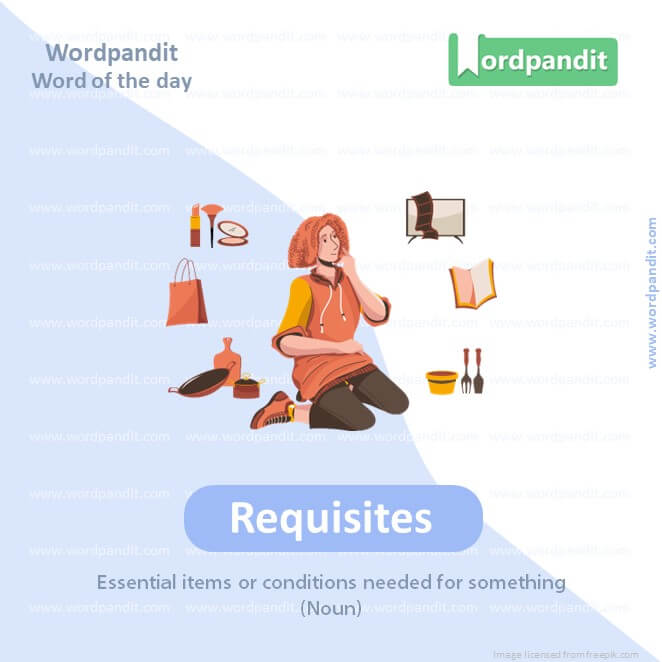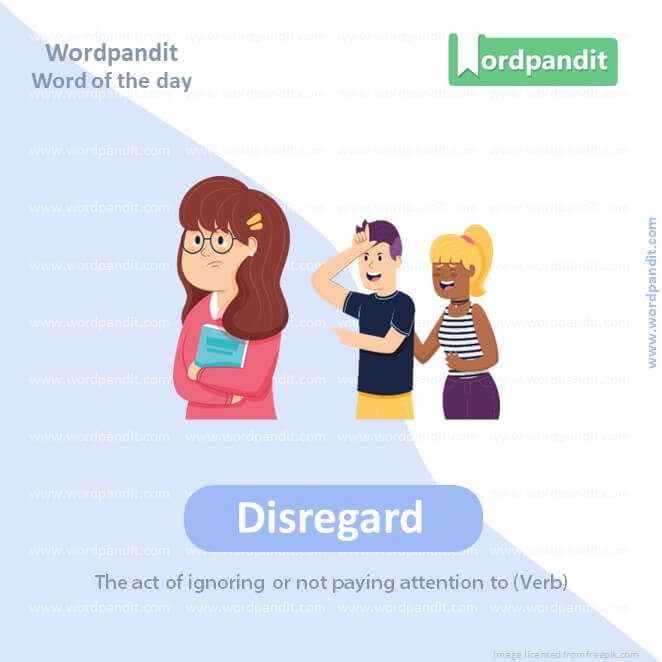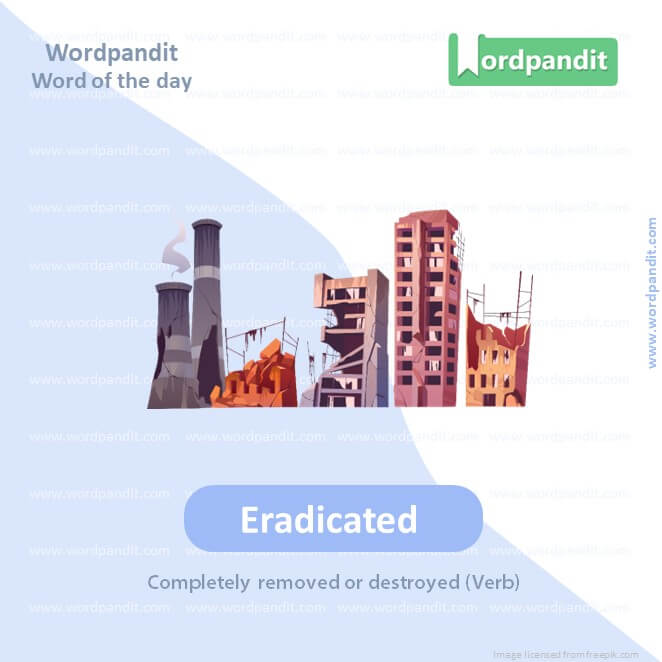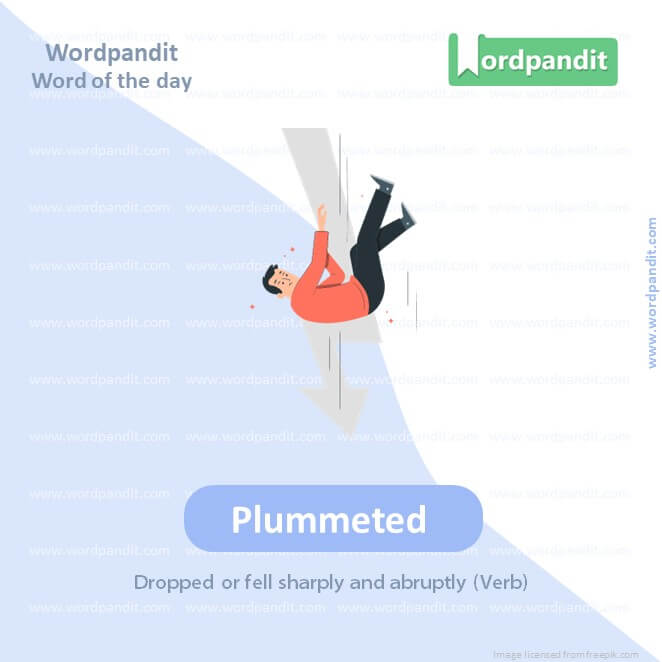Daily Vocabulary Words: List of Daily Used Words in Leading Indian Newspapers
Hi there. Welcome to this special section @ Wordpandit. Our endeavour here is straightforward: highlighting daily vocabulary words that you would come across in leading newspapers in the country. We have included the following newspapers in our selection:
• The Times of India
• The Economic Times
• Hindustan Times
• Mint
• Indian Express
We are putting in extensive work to develop your vocabulary. All you have to do is be regular with this section and check out this post daily. This is your repository of commonly used words; essentially, we are posting a list of daily used words. Hence, this has significant practical application as it teaches you words that are commonly used in leading publications mentioned above.
Visit the website daily to learn words from leading Indian newspapers.

WORD-1: Requisites
CONTEXT: A general lack of understanding of the pre-requisites of a strong and healthy relationship and fast depleting authenticity in our interpersonal conversations are the three main challenges modern lifestyle has posed before us.
SOURCE: Indian Express
EXPLANATORY PARAGRAPH: Requisites are things that you really need to have or do for something else to work or be successful. Think of it like when you need crayons and paper to draw a picture. Without crayons and paper, you can’t make the drawing. So, crayons and paper are requisites for drawing.
MEANING: Essential items or conditions needed for something (Noun).
PRONUNCIATION: rek-wuh-zits
SYNONYMS: Necessities, Essentials, Requirements, Musts, Needs
USAGE EXAMPLES:
1. Safety gear is one of the key requisites for construction work.
2. Learning basic math is a requisite for advanced mathematics courses.
3. A passport and visa are requisites for international travel.
4. Patience and practice are requisites for mastering a musical instrument.

WORD-2: Disregard
CONTEXT: Privacy and individual choice have promoted a sinister trend of total disregard of the collective spirit.
SOURCE: Times of India
EXPLANATORY PARAGRAPH: Disregard is when you don’t pay attention to something or someone, or when you ignore something. It’s like when someone tells you to clean your room, but you keep playing instead of listening.
MEANING: The act of ignoring or not paying attention to (Verb).
PRONUNCIATION: dis-ri-gahrd
SYNONYMS: Ignore, Overlook, Neglect, Dismiss, Overpass
USAGE EXAMPLES:
1. He showed complete disregard for the rules of the game.
2. Disregarding her advice, he went ahead with his plan.
3. The disregard for safety measures led to an accident.
4. There was a general disregard for the environment in the project.

WORD-3: Perquisites
CONTEXT: Second is the acute short supply in understanding of some key perquisites of a strong, healthy relationship.
SOURCE: Indian Express
EXPLANATORY PARAGRAPH: Perquisites are special things that you get because of your job, besides your usual salary. Like if your dad gets a company car to drive because of his job, that car is a perquisite.
MEANING: Benefits or privileges that come with a job or position, often in addition to a salary (Noun).
PRONUNCIATION: pur-kwuh-zits
SYNONYMS: Privileges, Benefits, Extras, Fringe Benefits, Perks
USAGE EXAMPLES:
1. A company car and free meals are among the perquisites of her job.
2. Health insurance is a valuable perquisite.
3. Employees were offered travel perquisites.
4. The perquisites of the position include a furnished apartment.
WORD-4: Connotations
CONTEXT: Poor language skills due to a lack of understanding of perfect words, alternate terms, their connotations, and nuances hamper our conversations and impact our relationships.
SOURCE: Hindustan Times
EXPLANATORY PARAGRAPH: Connotations are the feelings or ideas that a word makes you think of, besides its main meaning. Like the word “home” doesn’t just mean a place where you live; it might also make you think of warmth and family.
MEANING: The ideas or feelings that a word invokes in addition to its literal or primary meaning (Noun).
PRONUNCIATION: kon-uh-tay-shuhns
SYNONYMS: Implications, Suggestions, Associations, Undertones, Meanings
USAGE EXAMPLES:
1. The word “snake” has negative connotations for many people.
2. The term “childlike” has connotations of innocence.
3. The color red has various connotations in different cultures.
4. The word “thrifty” has positive connotations of being careful with money.

WORD-5: Eradicated
CONTEXT: Diwali reminds us that without actually lighting a lamp, no darkness can be eradicated.
SOURCE: Hindustan Times
EXPLANATORY PARAGRAPH: Eradicated means getting rid of something completely, like when you clean your room so well that there’s not a single piece of trash left. It’s like totally removing something so it’s gone.
MEANING: Completely removed or destroyed (Verb).
PRONUNCIATION: ih-rad-i-kay-tid
SYNONYMS: Eliminated, Wiped out, Exterminated, Abolished, Destroyed
USAGE EXAMPLES:
1. The disease was successfully eradicated in the region.
2. They made efforts to eradicate poverty in the community.
3. The new policy was aimed to eradicate corruption.
4. The invasive species was eradicated to protect the ecosystem.
WORD-6: Inconsequential
CONTEXT: Some economists may dismiss the decline of 1.8 per cent as inconsequential. That would be completely wrong.
SOURCE: Hindustan Times
EXPLANATORY PARAGRAPH: Inconsequential is when something is not important or doesn’t matter much. Like if you lose a game, it might be inconsequential because it’s just a game and having fun is what’s really important.
MEANING: Not important or significant (Adjective).
PRONUNCIATION: in-kon-suh-kwen-shuhl
SYNONYMS: Trivial, Minor, Unimportant, Negligible, Insignificant
USAGE EXAMPLES:
1. The error was inconsequential and did not affect the outcome.
2. They discussed some inconsequential matters
3. In the grand scheme of things, these problems are inconsequential.
4. He tended to worry about inconsequential details.

WORD-7: Plummeted
CONTEXT: Financial assets of households have plummeted to a low of 5.1 per cent.
SOURCE: Indian Express
EXPLANATORY PARAGRAPH: Plummeted means something has fallen down very fast and suddenly, like a rock dropping from a cliff. It’s when something goes down really quickly.
MEANING: Dropped or fell sharply and abruptly (Verb).
PRONUNCIATION: pluhm-it-ed
SYNONYMS: Plunged, Tumbled, Dropped, Fell, Crashed
USAGE EXAMPLES:
1. Stock prices plummeted overnight.
2. The bird plummeted from the sky.
3. Temperatures plummeted below freezing.
4. His confidence plummeted after the failure.
WORD-8: Reassessment
CONTEXT: Risks to the near-term global outlook, persistent cost pressures, upward drift in inflation expectations, policy rates higher for longer, abrupt reassessment of liquidity and credit risks, adverse supply shocks in commodity markets, and spike in energy prices.
SOURCE: Indian Express
EXPLANATORY PARAGRAPH: Reassessment is like looking at something again to decide if you need to change your thoughts about it. It’s like doing a puzzle, then checking it again to see if you put the pieces in the right places.
MEANING: The act of reevaluating or reconsidering something (Noun).
PRONUNCIATION: ree-uh-ses-muhnt
SYNONYMS: Reevaluation, Review, Reexamination, Reconsideration, Analysis
USAGE EXAMPLES:
1. A reassessment of the project showed the need for more funding.
2. The teacher did a reassessment of the student’s work.
3. There was a reassessment of the company’s strategy.
4. The reassessment of the situation led to a change in plans.
WORD-9: Reiterate
CONTEXT: Having said this I would like to reiterate what I have said before in this column.
SOURCE: Times of India
EXPLANATORY PARAGRAPH: Reiterate means to say something again or repeat it, often to make it very clear. It’s like when your mom tells you twice to clean your room to make sure you remember.
MEANING: Say something again or a number of times for emphasis or clarity (Verb).
PRONUNCIATION: ree-it-uh-rayt
SYNONYMS: Repeat, Restate, Recapitulate, Echo, Reaffirm
USAGE EXAMPLES:
1. He reiterated the importance of being on time.
2. The teacher reiterated the instructions.
3. She reiterated her commitment to the project.
4. The announcement was reiterated to all the staff.
WORD-10: Squander
CONTEXT: It is because of ‘socialist’ economic policies that made our unwise leaders squander money on giving the poor charity.
SOURCE: Indian Express
EXPLANATORY PARAGRAPH: Squander means to waste something, especially something like time or money, by not using it wisely. It’s like if you have ten dollars and you spend it all on candy instead of saving some.
MEANING: Waste something, especially money or time, in a reckless or foolish manner (Verb).
PRONUNCIATION: skwon-der
SYNONYMS: Waste, Misuse, Dissipate, Blow, Fritter Away
USAGE EXAMPLES:
1. He squandered his inheritance on a lavish lifestyle.
2. Don’t squander this opportunity.
3. They squandered their chances of winning.
4. The company squandered resources on unprofitable projects.
vocabulary tricks
The proficiency of a language is often determined by the breadth of vocabulary. To effectively communicate, one must constantly expand their vocabulary. Many lean on ‘vocabulary tricks’ to speed up this process, enabling instantaneous recall and usage of new words. However, as these strategies require a methodological approach, the question becomes: how should vocabulary tricks be effectively learned?
The learning process involving vocabulary tricks commences with the practice of contextual reading. Engulfing oneself in a wide range of texts, from novels to scientific articles, presents new words in various contexts. This provides an understanding of their natural usage and subtler nuances. More importantly, it provides space for the application of the first trick – the Guessing Trick. This vocabulary trick forces the learner to deduce the meaning of the novel term based on its use in the text, sharpening linguistic intuition.
To cement new words, vocabulary tricks often suggest making personal connections. For instance, the Visualisation Trick is connecting visual images related to the word’s meaning. A vivid image associated with a word tends to stick longer in our brains, ensuring quick recall.
Yet another amongst clever vocabulary tricks is the Mnemonic Trick. Through this, learners construct an acronym or sentence using the new words. This trick involves more creativity and unique affiliations with the words, establishing stronger recall links.
Lastly, the Root Analysis Trick allows you to dissect unfamiliar words and identify parts you recognize – roots, prefixes, or suffixes. This vocabulary trick adds a new layer of understanding, making it easier to remember and recognize similar words.
However, the effectiveness of vocabulary tricks relies on their implementation and consistent usage. While they are dynamic tools, their absorption must be passive and continual. It is crucial, therefore, to incorporate these vocabulary tricks in your daily routine to get the most out of them. In the blink of an eye, words that once seemed alien become familiar friends. Hence, mastering these vocabulary tricks is the key to unlocking an expansive vocabulary and refining language proficiency.







